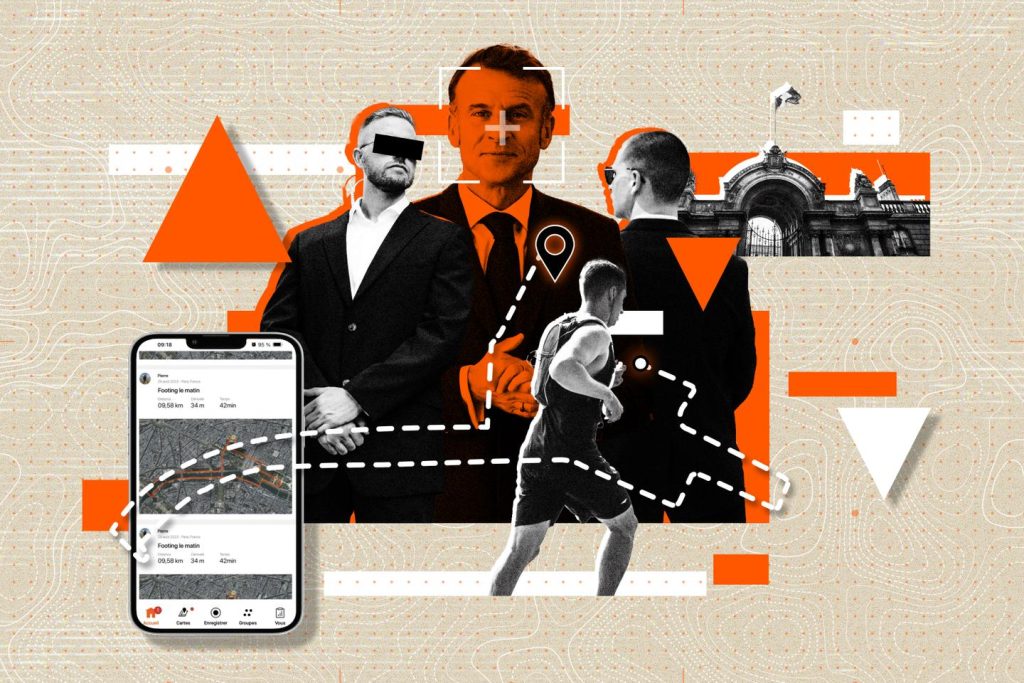Emmanuel Macron’s current whereabouts have been inadvertently revealed by his security guards through their use of the social network Strava. This platform allows athletes to track and share their workouts online using smartphones or connected watches. However, the guards have been unknowingly sharing their location information publicly, including professional movements, which could compromise the president’s security. This vulnerability allows for the tracking of the guards’ movements, potentially revealing the locations where Macron will be staying during his travels.
The security guards of heads of state also share sensitive information online, including their home addresses, photos of their loved ones, and hobbies. These details could make them prime targets for individuals seeking to harm the president. This breach of security emphasizes the importance of maintaining discretion and confidentiality among those responsible for protecting national leaders. Additionally, the inadvertent disclosure of such information poses a significant risk to the safety and security of high-profile individuals like Emmanuel Macron.
In a video investigation by Le Monde, it was revealed how much information could be gleaned about Macron’s movements through the activities of his security detail, the Group of Security for the Presidency of the Republic (GSPR). By sharing their running routes and training locations on Strava, these guards inadvertently exposed crucial details about the president’s travel itinerary. This episode highlights the unintended consequences of using social media platforms like Strava for professional purposes, particularly when it comes to high-profile figures like heads of state.
The potential security threat posed by the inadvertent disclosure of information by Macron’s security guards underscores the need for increased awareness and caution in the use of social media among those responsible for protecting national leaders. The unintentional sharing of location data and personal details online can have serious implications for the safety and security of individuals like Macron and his security detail. It is essential for security personnel to be vigilant and mindful of the risks associated with online activity, particularly when it involves sensitive information related to their professional duties.
The use of Strava by Macron’s security guards highlights the broader issue of cybersecurity vulnerabilities in the digital age, particularly when it comes to high-profile individuals and public figures. The leakage of sensitive information through social media platforms can have far-reaching consequences, putting individuals at risk and compromising national security. This episode serves as a reminder of the importance of safeguarding personal and professional information in an increasingly interconnected and digital world, where privacy and security are paramount concerns for all individuals, including those responsible for protecting public officials.
In conclusion, the unintentional disclosure of Emmanuel Macron’s movements through the activities of his security guards on Strava underscores the need for heightened awareness and caution in the use of social media platforms by individuals responsible for protecting national leaders. The potential security risks posed by the sharing of sensitive information online highlight the importance of maintaining confidentiality and discretion in professional roles that involve the safety and security of high-profile individuals. This incident serves as a cautionary tale about the broader implications of cybersecurity vulnerabilities in the digital age and the need for increased vigilance in safeguarding sensitive information in an interconnected world.















